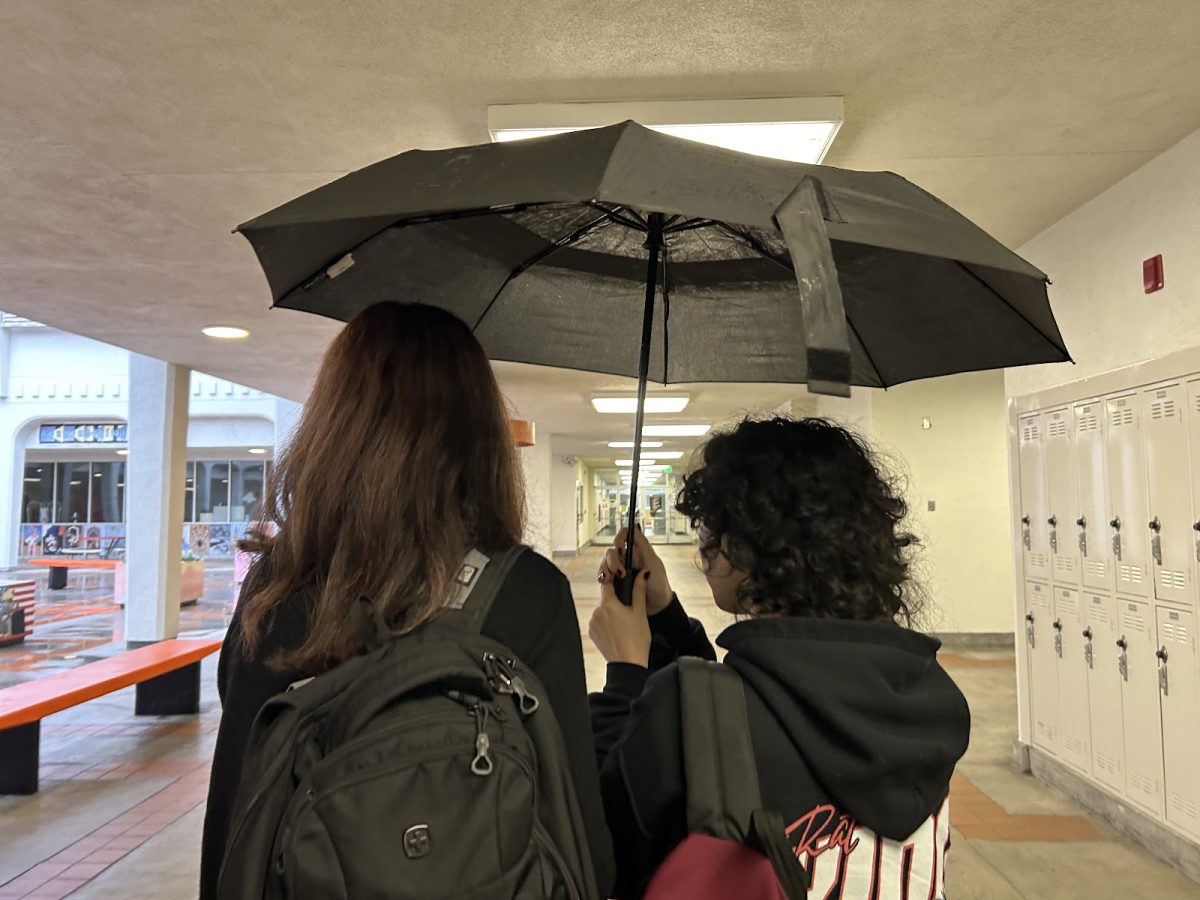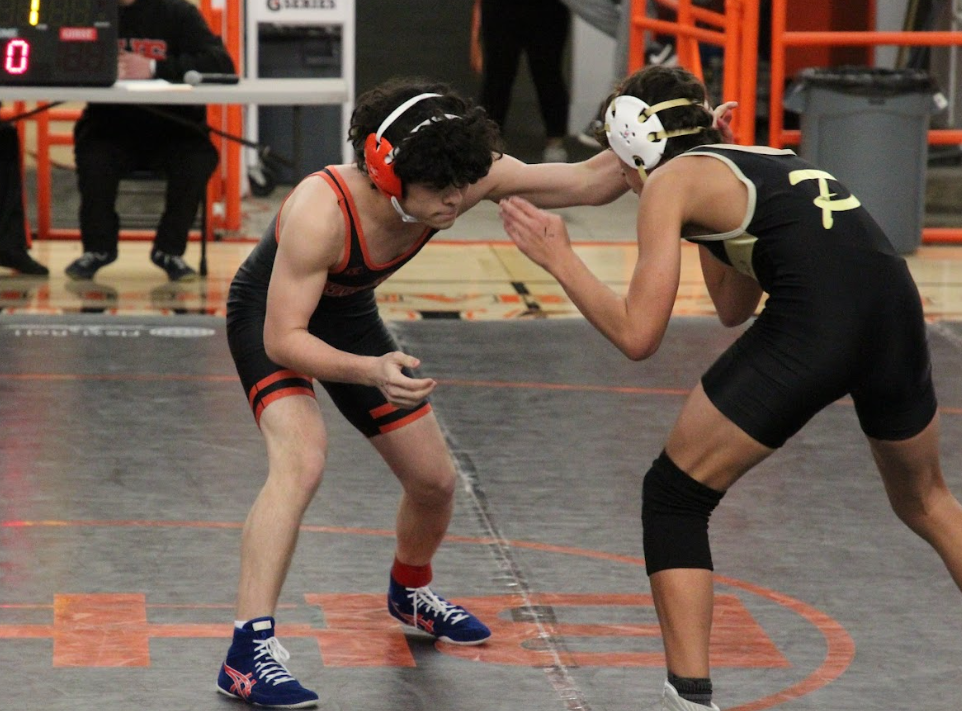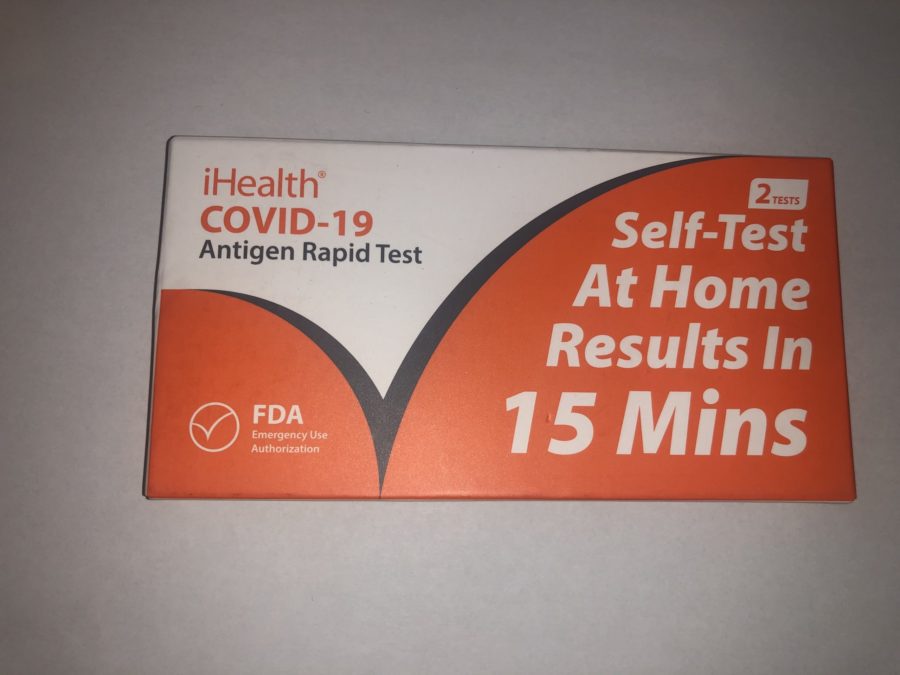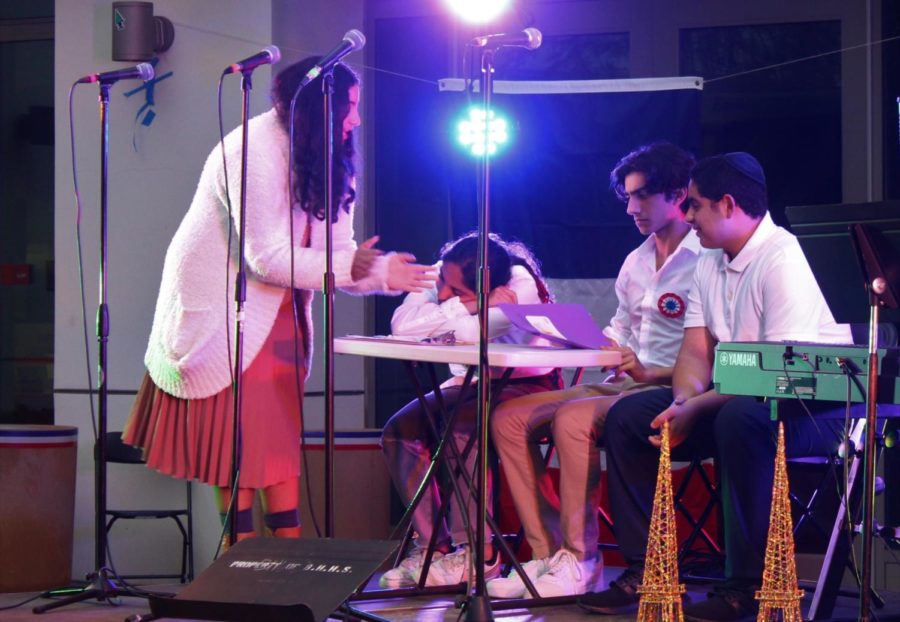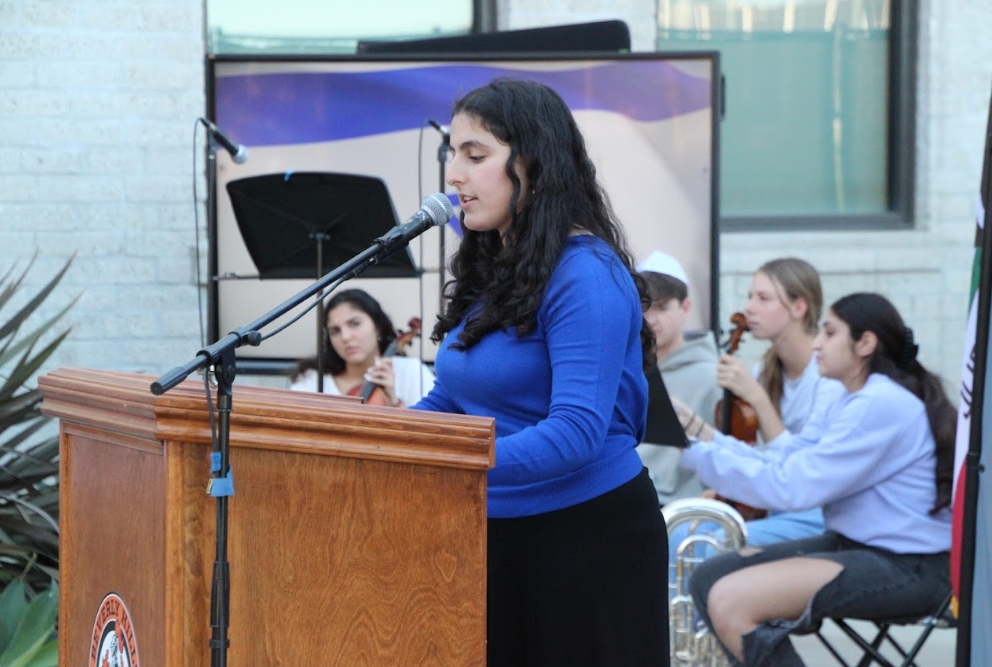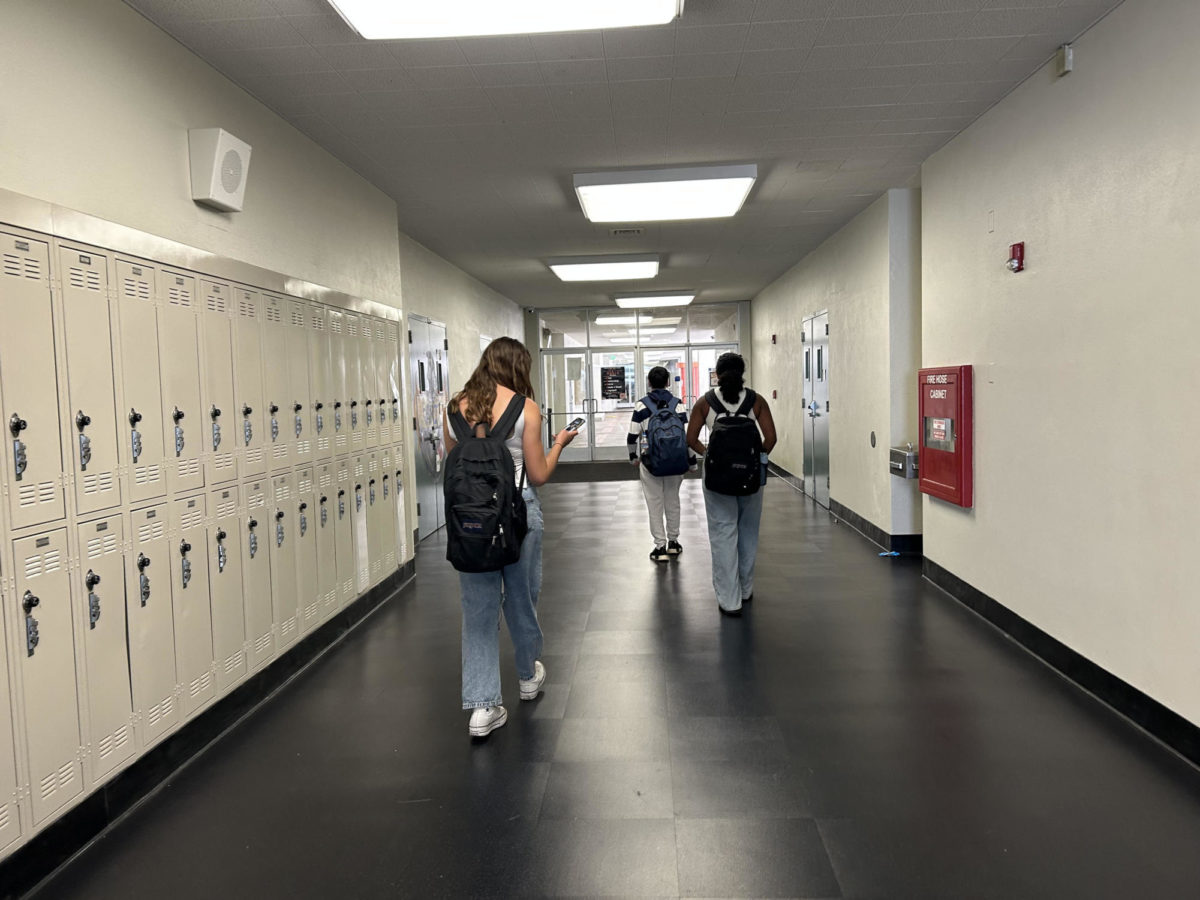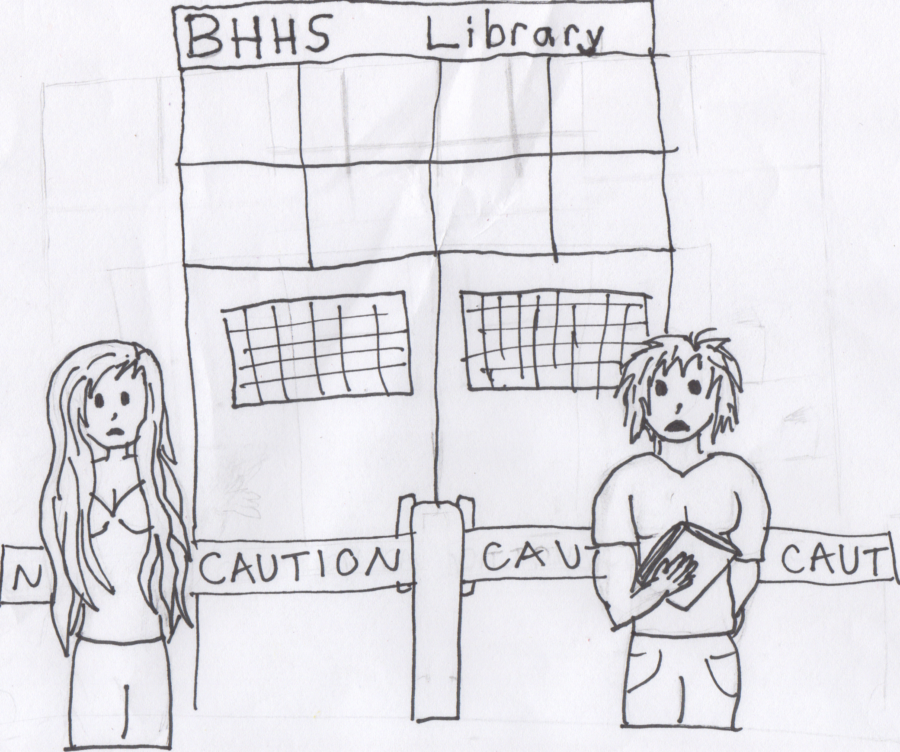Jessica Saadian, Michelle Banayan, staff writers
Whether it is from the social media that is keeping them awake or from deciding to do homework at the last minute, teenagers struggle to keep their eyes open in class. The National Sleep Foundation states that sleep is one of the most important factors for brain activity to occur, yet most teenagers are sleep deprived.
Studies show that adolescents should be receiving about nine hours of sleep per night to perform at their optimum potential, according to the National Sleep Foundation. Therefore, if a student must wake up at seven in the morning, he or she should be in bed by 10 p.m. However, according to a poll conducted on beverlyhighlights.com, out of 82 students who were polled, 50 percent of students on campus are receiving four to six hours of sleep per night, which is significantly below the recommended average.
In addition, students may tend to have irregular sleeping patterns depending on their course load and social life, which can cause detrimental effects on their quality of sleeping. By receiving an adequate amount of sleep, students are able to better concentrate on a task at hand.
“Going to bed early used to be a problem for me, but after I forced myself to go to bed early each night, my body got used it,” senior Raimy Harouni said. “Now I feel refreshed every morning and can focus more, knowing that I received the right amount of hours of sleep.”
Whether it is from the social media that is keeping them awake or from deciding to do homework at the last minute, teenagers struggle to keep their eyes open in class. The National Sleep Foundation states that sleep is one of the most important factors for brain activity to occur, yet most teenagers are sleep deprived.
Studies show that adolescents should be receiving about nine hours of sleep per night to perform at their optimum potential, according to the National Sleep Foundation. Therefore, if a student must wake up at seven in the morning, he or she should be in bed by 10 p.m. However, according to a poll conducted on beverlyhighlights.com, out of 82 students who were polled, 50 percent of students on campus are receiving four to six hours of sleep per night, which is significantly below the recommended average.
In addition, students may tend to have irregular sleeping patterns depending on their course load and social life, which can cause detrimental effects on their quality of sleeping. By receiving an adequate amount of sleep, students are able to better concentrate on a task at hand.
“Going to bed early used to be a problem for me, but after I forced myself to go to bed early each night, my body got used it,” senior Raimy Harouni said. “Now I feel refreshed every morning and can focus more, knowing that I received the right amount of hours of sleep.”
According to the National Center for Biotechnology Information (NCBI), “students who report insomnia, inadequate sleep, daytime sleepiness, irregular sleep patterns and/ or poor sleep quality do not perform as well in school as others.” Similarly, University of Maryland Medical Center reports that lack of normal sleep can slow down one’s reaction times, raise blood pressure and put one at a higher risk of obesity and diabetes. Moreover, the NCBI believes that teenage boys who are sleep deprived are likelier to use illegal substances, and experience antisocial behavior and negative mood swings.
Not only does sleep deprivation affect students mentally, but it also affects them physically. Lack of sleep can contribute to acne and can cause students to eat unhealthy foods. According to the UCLA Sleep Center, teenagers who miss out on sleep have a blood alcohol level of 0.08 percent, which is equivalent to the standard blood alcohol level of one who is driving illegally under the influence of alcohol.
In addition, neurologists from the NCBI found that 75.8 percent of high school students have difficulty waking up in the morning and 28.8 percent of people fall asleep in class. According to Dr. David Wolfe, a psychology instructor and licensed psychotherapist, “during a normal school week, 20 percent of students pull ‘all-nighters’ at least once a month and 35 percent stay up until 3 a.m at least once a week.”
Furthermore, students claim to get stressed out before going to bed after thinking of what is to come in their upcoming week.
“Although my body feels tired and tells me that it wants to go to sleep, I always lie on my bed thinking of all the things I should be doing, such as studying for my tests or working on my projects,” senior Amanda Massaband said. “I spend so much thinking about all my school work that I lose track of time and realize the amount of hours I wasted.” Additionally, junior Nika Salim has trouble falling asleep at night and waking up for school. Stress and worrying had taken a toll on her body and she would find herself lying awake until three or four in the morning.
Not only does sleep deprivation affect students mentally, but it also affects them physically. Lack of sleep can contribute to acne and can cause students to eat unhealthy foods. According to the UCLA Sleep Center, teenagers who miss out on sleep have a blood alcohol level of 0.08 percent, which is equivalent to the standard blood alcohol level of one who is driving illegally under the influence of alcohol.
In addition, neurologists from the NCBI found that 75.8 percent of high school students have difficulty waking up in the morning and 28.8 percent of people fall asleep in class. According to Dr. David Wolfe, a psychology instructor and licensed psychotherapist, “during a normal school week, 20 percent of students pull ‘all-nighters’ at least once a month and 35 percent stay up until 3 a.m at least once a week.”
Furthermore, students claim to get stressed out before going to bed after thinking of what is to come in their upcoming week.
“Although my body feels tired and tells me that it wants to go to sleep, I always lie on my bed thinking of all the things I should be doing, such as studying for my tests or working on my projects,” senior Amanda Massaband said. “I spend so much thinking about all my school work that I lose track of time and realize the amount of hours I wasted.” Additionally, junior Nika Salim has trouble falling asleep at night and waking up for school. Stress and worrying had taken a toll on her body and she would find herself lying awake until three or four in the morning.
“I usually get anywhere from one to five hours of sleep,” Salim said, “so I read, surf the web and listen to music when I’m unable to sleep because they don’t require a lot of brain power.”
Salim, along with approximately one in four teenagers, suffers from chronic insomnia. Insomnia is a sleep disorder in which the person affected is unable to fall or stay asleep for as long as he or she wishes. This sleep disorder can result from a variety of factors. However, in teens, insomnia is mostly triggered by stress, anxiety, depression, poor diet and changes in one’s life at home.
Insomnia does not only directly affect sleeping patterns, but it also indirectly affects students’ academic performance level. In addition, as adolescents age and pursue higher education, their chances of developing insomnia increase. Because of their insomnia, adolescents are not adequately rested enough to concentrate on their school work and stay up studying for exams.
“[Insomnia] makes me incapable of concentrating and I usually end up missing school on days which I get no sleep,” Salim said.
Salim, along with approximately one in four teenagers, suffers from chronic insomnia. Insomnia is a sleep disorder in which the person affected is unable to fall or stay asleep for as long as he or she wishes. This sleep disorder can result from a variety of factors. However, in teens, insomnia is mostly triggered by stress, anxiety, depression, poor diet and changes in one’s life at home.
Insomnia does not only directly affect sleeping patterns, but it also indirectly affects students’ academic performance level. In addition, as adolescents age and pursue higher education, their chances of developing insomnia increase. Because of their insomnia, adolescents are not adequately rested enough to concentrate on their school work and stay up studying for exams.
“[Insomnia] makes me incapable of concentrating and I usually end up missing school on days which I get no sleep,” Salim said.
“Since I hardly sleep at night, I have a very hard time focusing in class. My grades have significantly dropped, and I can no longer perform at my full potential.”
Insomnia often accompanies other sleep disorders, such as hypersomnia, narcolepsy, periodic limb movement and kleine-levin syndrome. According to the Cleveland Clinic, another sleep disorder, sleep apnea, is a condition “where the sufferer stops breathing for 10 to 30 seconds, up to 400 times a night.” Due to lack of sleep from apnea, those who suffer from the disorder experience fatigue, and thus are six times more likely to die in a traffic accident.
Sleep disorders are not recommended to go untreated. There are various methods to improve one’s sleeping habits to sleep better during the night, such as creating a regular bedtime schedule, avoiding the use of electronics before bedtime and maintaining regular diet and exercise and even taking naps. According to siestaawareness.org, naps improve productivity by as much as 30 percent, reduce stress and increase energy and alertness. Therefore, if one feels exhausted after a long day of school, rather than stay up late, it is suggested that he or she take a nap. For extreme cases, sleeping pills may one of the treatments as well.
Although pulling an all-nighter may seem like a good solution to cramming for that final, a lack of sleep leads to an increase stress, which can lead to further sleep disorders that will prove detrimental in the long run. Therefore, students are recommended to get a healthy amount of sleep per night to prevent additional consequences.
Insomnia often accompanies other sleep disorders, such as hypersomnia, narcolepsy, periodic limb movement and kleine-levin syndrome. According to the Cleveland Clinic, another sleep disorder, sleep apnea, is a condition “where the sufferer stops breathing for 10 to 30 seconds, up to 400 times a night.” Due to lack of sleep from apnea, those who suffer from the disorder experience fatigue, and thus are six times more likely to die in a traffic accident.
Sleep disorders are not recommended to go untreated. There are various methods to improve one’s sleeping habits to sleep better during the night, such as creating a regular bedtime schedule, avoiding the use of electronics before bedtime and maintaining regular diet and exercise and even taking naps. According to siestaawareness.org, naps improve productivity by as much as 30 percent, reduce stress and increase energy and alertness. Therefore, if one feels exhausted after a long day of school, rather than stay up late, it is suggested that he or she take a nap. For extreme cases, sleeping pills may one of the treatments as well.
Although pulling an all-nighter may seem like a good solution to cramming for that final, a lack of sleep leads to an increase stress, which can lead to further sleep disorders that will prove detrimental in the long run. Therefore, students are recommended to get a healthy amount of sleep per night to prevent additional consequences.
Story continues below advertisement

